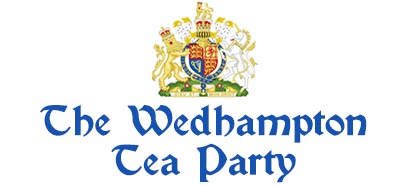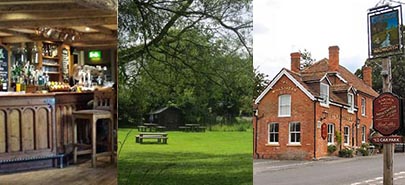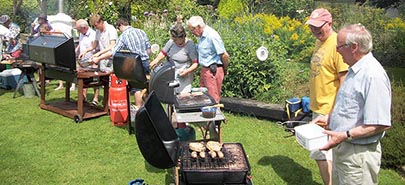It is critical that everybody observes the following key behaviours:
- HANDS – Wash your hands regularly and for at least 20 seconds.
- FACE – Cover your face in enclosed spaces, especially where social distancing may be difficult and where you will come into contact with people you do not normally meet.
- SPACE – Stay 2 metres apart where possible, or 1 metre with extra precautions in place.
Face Coverings
- Customers in private hire vehicles and taxis must wear face coverings (from 23 September).
- Customers in hospitality venues must wear face coverings, except when seated at a table to eat or drink. Staff in hospitality and retail will now also be required to wear face coverings (from 24 September).
- People who are already exempt from the existing face covering obligations, such as because of an underlying health condition, will continue to be exempt from these new obligations.
- Guidance stating that face coverings and visors should be worn in close contact services will now become law (from 24 September).
- Staff working on public transport and taxi drivers will continue to be advised to wear face coverings.
Meeting with others
1. Social distancing
To reduce the risk of catching or spreading coronavirus, try to keep at least 2 metres away from people you do not live with. Social distancing is essential to stop the spread of the virus, as it is more likely to spread when people are close together. An infected person can pass on the virus even if they do not have any symptoms, through talking, breathing, coughing or sneezing.
When with people you do not live with, you should also avoid: physical contact; being close and face-to-face; and shouting or singing close to them. You should also avoid crowded areas with lots of people; and touching things that other people have touched.
Where you cannot stay 2 metres apart you should stay more than 1 metre apart, as well as taking extra steps to stay safe. For example:
- wear a face covering: on public transport and in many indoor spaces, you must wear a face covering by law, unless you are exempt
- move outdoors, where it is safer and there is more space
- if indoors, make sure rooms are well ventilated by keeping windows and doors open
You do not need to socially distance from anyone in your household, meaning the people you live with. You also do not need to socially distance from someone you’re in an established relationship with, or anyone in your legally-permitted support bubble if you are in one.
It may not always be possible or practicable to maintain social distancing when providing care to a young child, or person with a disability or health condition. You should still limit close contact as much as possible when providing these types of care, and take other precautions such as washing hands and opening windows for ventilation.
2. Seeing friends and family
When seeing friends and family you do not live with you should:
- meet in groups of 6 or less
- follow social distancing rules when you meet up
- limit how many different people you see socially over a short period of time
- meet people outdoors where practical: meeting people outdoors is safer than meeting people indoors because fresh air provides better ventilation
Limits on the number of people you can see socially have changed. When meeting friends and family you do not live with (or have formed a support bubble with) you must not meet in a group of more than 6, indoors or outdoors. This is against the law and the police will have the powers to enforce these legal limits, including to issue fines (fixed penalty notices) of £200, doubling for further breaches up to a maximum of £6,400.
Exceptions where groups can be larger than 6 people.
Where a group includes someone covered by such an exception (for example, someone who is working), they are not counted as part of the gatherings limit. This means, for example, a tradesperson can go into a household of six without breaching the limit, if they are there for work.
More information
14 September 2020 Update
People must not meet in groups larger than 6 in England, inside or outside.
23 June 2020 Update
What you can do
- From 4 July the 2m distancing guidance will change in England. People should keep a distance of “one metre plus” – this means staying one metre apart, while observing precautions to reduce the risk of transmission.
- Two households of any size will be able to meet indoors or outside. It will be possible to stay overnight.
- Restaurants and pubs in England will also be allowed to reopen, providing they follow safety guidelines.
- Holiday accommodation – including hotels, B&Bs, cottages, campsites and caravan parks – can also reopen.
- Outdoors, people from multiple households can meet in groups of up to six – but two households can meet regardless of size.
- More outdoor spaces will open if they can do so safely, including outdoor gyms and children’s playgrounds.
- Hairdressers will be able to reopen, as long as they take precautions.
- Libraries, community centres, bingo halls, cinemas, museums and galleries will be able to open, along with funfairs and theme parks, amusement arcades, outdoor skating rinks, social clubs and model villages.
- Places of worship will be able to open for prayers and services, including weddings with up to 30 guests – subject to social distancing.
You should continue to adhere to social distancing guidelines when you are outside your home, ensuring you are at least one metre away from anyone outside your household.
What you can’t do
- meet several families inside
- exercise in an indoor sports court, gym or leisure centre, or go swimming in a public pool
What are the new quarantine rules?
Passengers arriving in the UK by plane, ferry or train – including UK nationals – will be asked to provide an address where they will self-isolate for 14 days. Travellers can be fined £100 for failing to fill in a form with these details.
Surprise visits will be used to check they are following the rules. Those in England could be fined up to £1,000 if they fail to self-isolate.
Passengers should drive their own car to their destination, where possible. If they don’t provide an address, the government will arrange accommodation at the traveller’s expense.
Once at their destination they must not use public transport or taxis. They must not go to work, school, or public areas, or have visitors except for essential support.
They are also not allowed to go out to buy food, or other essentials, where they can rely on others.
People returning from overseas will not be automatically eligible for statutory sick pay unless they meet the required conditions – for example displaying coronavirus symptoms.
Is anywhere exempt from quarantine?
Anyone arriving from the Common Travel Area (CTA) – the Republic of Ireland, the Channel Islands, or the Isle of Man – will not have to enter quarantine, as long as they have been in the CTA for at least 14 days.
The government has also said it is looking into international travel corridors or “air bridges” to countries with low infection rates and strong healthcare systems. It hopes this could avoid the need for quarantine for travellers between the two.
more information













































